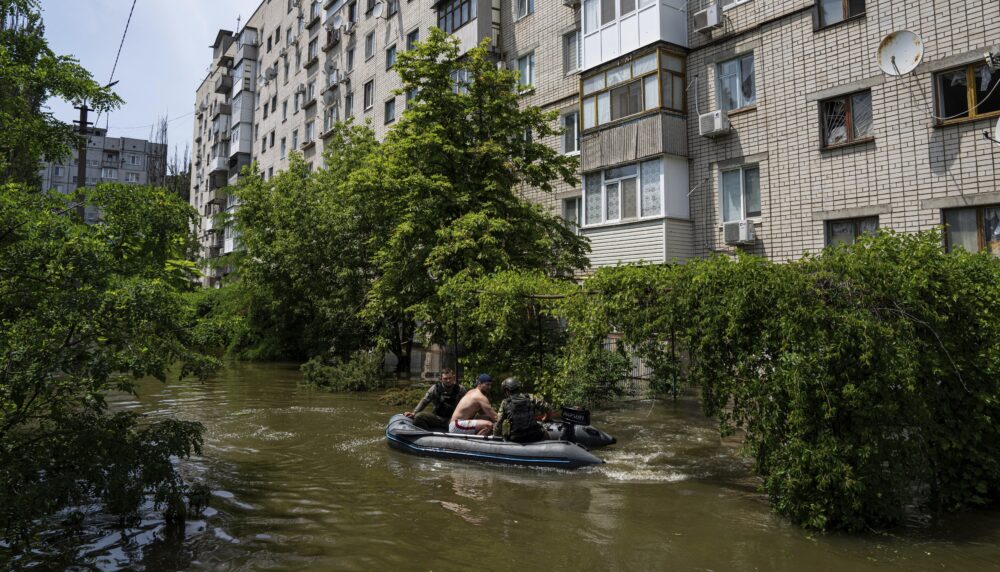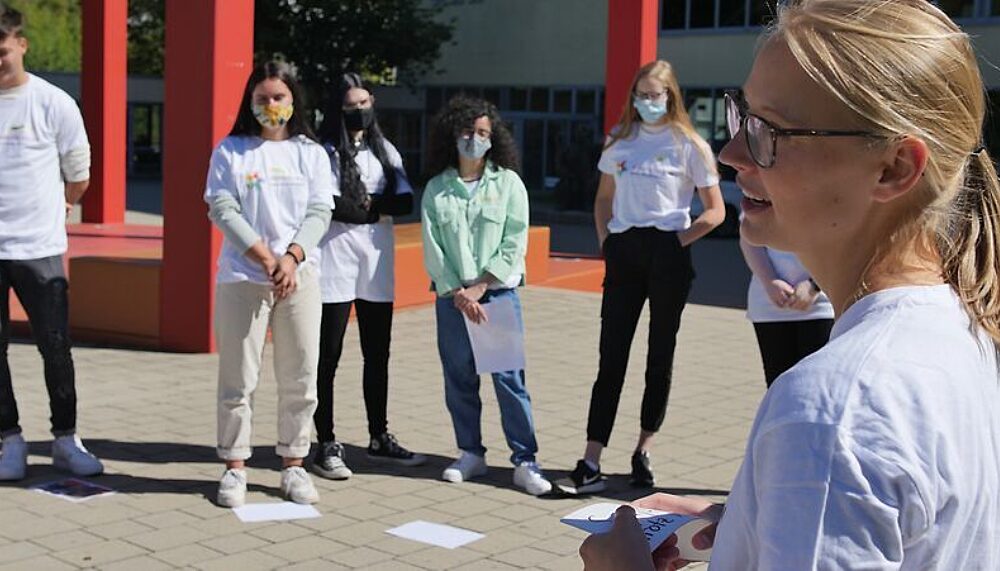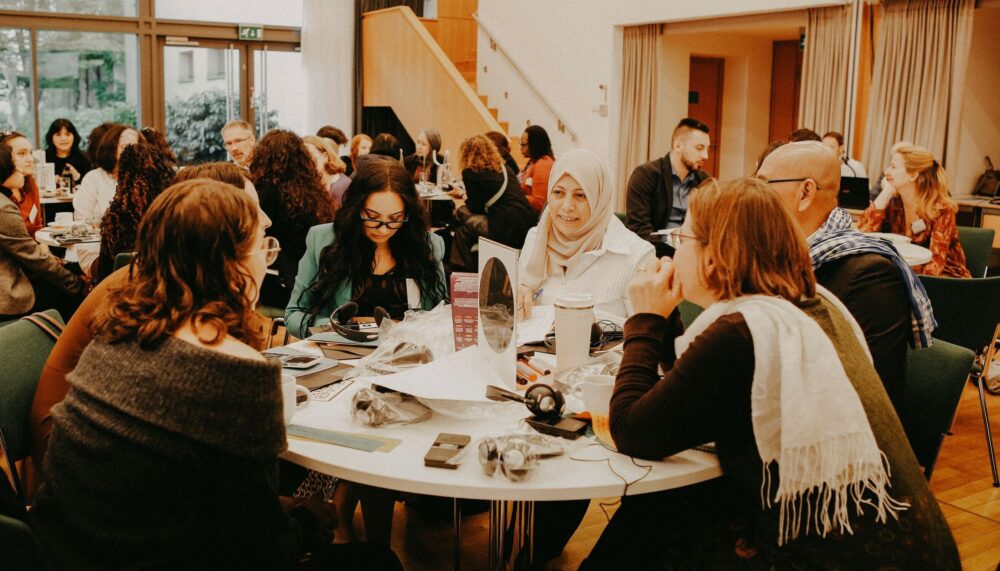BLOG POST | 11 Mar 2024
From silent victim to bridgebuilder: The potential of environmental peacebuilding in Ukraine

Our colleague Mariia Levchenko shares insights how environmental rehabilitation can go hand in hand with social cohesion programmes in Ukraine.
By Mariia Levchenko
The war in Ukraine has precipitated significant environmental damage, from the flooding caused by the Kakhovka Dam explosion to the widespread contamination from land and sea mines. These developments not only pose immediate threats to human health and safety but also compromise the long-term ecological integrity and economic sustainability of Europe’s most biodiverse country.
Integrate environmental restoration and social cohesion programming
In December 2023, the Berghof Foundation facilitated a pivotal workshop in Lviv, Ukraine, focusing on the integration of environmental peacebuilding strategies amidst the ongoing war. We brought together a diverse group of experts in environmental science, peacebuilding, and community engagement to evaluate the war’s environmental impact on Ukraine and to strategise on advancing environmental protection within the framework of social cohesion.
Amidst the conflict’s chaos, the environmental degradation in Ukraine unfolds silently but catastrophically.
“Amidst the conflict’s chaos, the environmental degradation in Ukraine unfolds silently but catastrophically,” remarked a participant, highlighting the workshop’s mission to develop strategies to remedy these war-induced ecological crises. The discussions not only centered around the consequences of war but also focused on shaping an integrated approach to restore the environment and build sustainable peace.
To prevent new regional disparities during the post-war reconstruction phase, it is vital to ensure environmental rehabilitation efforts proceed alongside social cohesion programmes. This approach will balance ecological restoration with equitable development and will foster unity, rather than having communities compete for resources during the recovery process. A programme that involves ex-combatants and veterans in ecological restoration projects in the Carpathian Mountains is a practical example of this integrated approach. These initiatives serve a dual purpose: They support environmental recovery while providing therapeutic rehabilitation for those who have borne the brunt of conflict.
Community-based and interdisciplinary environmental peacebuilding
The concept of environmental peacebuilding served as a central theme throughout our discussions. This approach advocates for leveraging environmental restoration projects as platforms for peacebuilding, promoting social cohesion through shared objectives and collaborative efforts. We critically examined the potential of such initiatives to rebuild trust within and between communities throughout Ukraine, emphasising the importance of aligning these projects with the specific needs and aspirations of local populations.
The workshop discussions reinforced our belief in the indispensability of inclusive community participation in environmental peacebuilding processes. Together with workshop participants, we envisioned “people’s assemblies” as a mechanism for ensuring that reconstruction efforts are informed by the needs and aspirations of local communities, particularly marginalised and minority groups. This approach would not only enhance the relevance and acceptance of environmental projects but also contribute to a broader sense of ownership and empowerment among community members. In addition, inclusive reconstruction plans ensure that all community members, regardless of their background or abilities, have a role in shaping the renewed environment, further solidifying the bond between societal healing and ecological restoration.
One of the most compelling insights from our time in Lviv was the critical importance of interdisciplinary collaboration in advancing environmental peacebuilding. The integration of expertise from the fields of environmental science, social sciences, conflict resolution, and community-driven development is essential for addressing the multifaceted challenges posed by the combined effects of ecological degradation and the social consequences of the war. As we move forward, we are committed to fostering such collaboration among disciplines, both within Ukraine and in our broader work on environmental peacebuilding.
Recommendations for environmental peacebuilding in Ukraine
Building on the rich dialogues and exchanges, the workshop culminated in a set of recommendations aimed at enhancing the integration of environmental considerations into broader peacebuilding efforts. These include the establishment of an interdisciplinary platform for environmental peacebuilding, the promotion of sustainable development projects that integrate environmental aspects, and the strengthening of grassroots mobilisation to enhance community resilience and cohesion.
My experience in co-organising and participating in the Lviv workshop has been both enlightening and humbling. It has reinforced my belief in the potential of environmental peacebuilding approaches to contribute to sustainable recovery and peace in Ukraine. As I reflect on the discussions and the shared visions for the future, I am impressed with the resilience of both the Ukrainian environment and its people. The path to recovery is undoubtedly complex, but with interdisciplinary cooperation and a commitment to inclusive, community-centered approaches, I am hopeful for a future in which environmental integrity and social cohesion are restored hand in hand.
Read more and find additional recommendations in the workshop report.
Media contact
You can reach the press team at:
+49 (0) 177 7052758
email hidden; JavaScript is required


